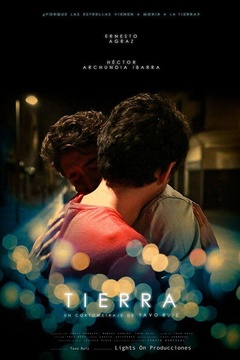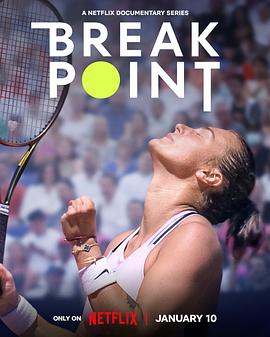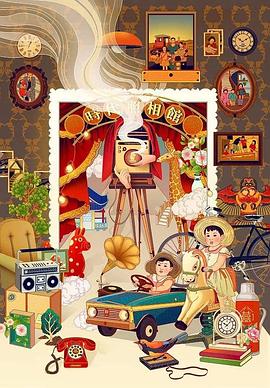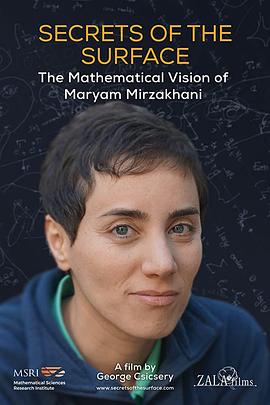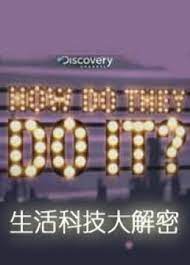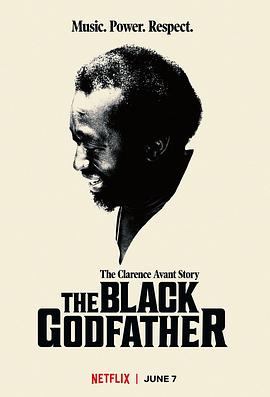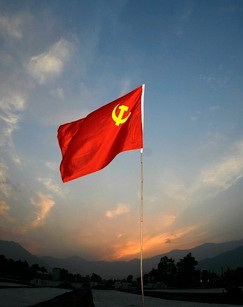- 三三云1
- 第1集
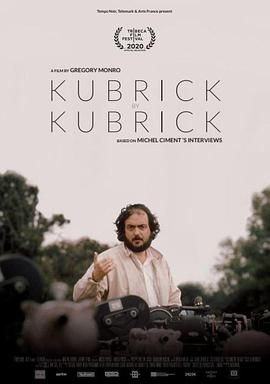
库布里克谈库布里克
- 主演:
- 斯坦利·库布里克,米歇尔·西蒙,马尔科姆·麦克道威尔,杰克·尼科尔森,谢莉·杜瓦尔,斯特林·海登,亚瑟·克拉克,马里莎·贝伦森,李·厄米,文森特·多诺费奥,彼得·塞勒斯,加勒特·布朗,肯·亚当,Leonard Rosenman,汤姆·克鲁斯,妮可·基德曼,克里斯蒂安妮·库布里克,罗杰·伊伯特,柯克·道格拉斯,苏·莱恩,詹姆斯·梅森
- 备注:
- 更新至1集
- 类型:
- 纪录片
- 导演:
- 格雷戈瑞·门罗
- 年代:
- 2020
- 地区:
- 美国
- 更新:
- 2024-04-09 12:12
- 简介:
- 斯坦利·库布里克在电影史上留下了永远无法磨灭的印记。他在电影制作领域的成就卓著,他的作品可以被称作最纯粹的艺术品,不断地被学生和其他电影大师拿来研究,试图从中解读出库布里克缄口不言的答案。虽然库布里克是有史以来最受关注的电影人之一,但直到现在,听库布里克说话的机会还是.....详细
News just in, we've just heard that the film director Stanley Kubrick has died at the age of 70.
Kubrick, who was an American, began his career in Hollywood where he directed Spartacus but he decided to move to Britain where he directed Lolita, Clockwork Orange, 2001: A Space Odysey and The Shining.
Stanley Kubrick was widely regarded as one of the greatest and most controversial masters of cinema. He just finished what was to be his last film, Eyes Wide Shut which took five years to make.
Stanley Kubrick has been called the Howard Hughes of cinema because he was such a recluse. I prefer to think of him as the Frank Sinatra of cinema because he always did everthing in his way. You can go back to any Kubrick film and feel rebirth.
This filmmakeer only directed 13 films in 40 years. But each of them has been an event. This filmmaker has made the best epic film, the best science fiction film, the best film about urban violence, the best horror film, the best film about the Vietnam war.
Kubrick is at the very least a genuine innovator who pushes out the boundaries of what is possible on film and there have never been too many of those about. He is also an elusive man who rarely permits himself to be observed at work.
He was not any of the things that the newspapers wrote about him. And he himself said, "It's very difficult. How do I defend myself?" Do I write an article, you know, 'Dear public, I'm charming'?"
That's more difficult than it sounds, actually. Cause, you know, he never does a television, or very rarely does any press interviews.
KubrickMichel Ciment Martin Scorsese / 2003 / Faber & FaberThe masterstroke is a succession of interviews that Michel Ciment had with Stanley Kubrick over time, over 10 years. It is brought to us in this book. I guess it wasn't an easy task to be adopted by Kubrik and to get close to a giant lik Kubrick.
Kubrick doesn't adopt anybody. He tolerated me or temporarily accepted me just for an interview. One cannot become Kubrick's intimate friend.
Where does your passion for Kubrick come from?
How come you're one of the few journalists in the world who got in touch with him? How did you do it?
He read an article I wrote about his work in 1968. It was the first major study in France. And when A Clockwork Orange came out, he granted me an interview for Express magazine. So I met with him in London.
Does he review what you write about him? Do you send him a copy?
He doesn't review what I write about him, he only reviews what he told me.
Well, perhaps the first question would be about this problem of interview because it seems that more and more you feel reluctant to speak about your films?
Well, I've never found it meaningful or even possible to talk about film aesthetics in terms of my own films. I also don't particularly enjoy the interviews because one always feels under the obligation to say some witty, brilliant summary of the intentions of the films. And with Dr. Strangelove, you could talk about the problems of Nuclear War, 2001 you could talk about extraterrestrial intelligence, but I've never been able......
Clockwork Orange about violence.
Yes, or future, social structures. I mean, I don't know what led me to make any of the films, really, that I made. And I realised that my own thought processes are very hard to define, in terms of, you know, what story do you want to make into a film. In the end, you know, it does become this very indefinable thing like why do you find one particular girl attractive or why did you marry your wife.
Yes, and also, I suppose it is more difficult for you to analyse yourself because the material comes from somebody else. So, it's more difficult to see the personal reasons that were behind it since you didn't write it yourself. But obviously the choice of the subject is a very personal thing, because you can choose from thousands of books and you choose one. You become the author of the book in a way by choosing it.
Well, if somebody else has sritten the story, you have the one great first reading. You never again, once you read something for the first time, can ever have that experience, and the judgment of the narrative and the sense of excitement of what parts of the story reach you emotionally, is something wihch doesn't exist if you write a story.
"<>"" && "The Blue Danube - An der schönen blWilli Boskovsky Wiener Staatsopernchor Wiener Philharmoniker Johann Strauss II / 1997News just in, we've just heard that the film director Stanley Kubrick has died at the age of 70.
Kubrick, who was an American, began his career in Hollywood where he directed Spartacus but he decided to move to Britain where he directed Lolita, Clockwork Orange, 2001: A Space Odysey and The Shining.
Stanley Kubrick was widely regarded as one of the greatest and most controversial masters of cinema. He just finished what was to be his last film, Eyes Wide Shut which took five years to make.
Stanley Kubrick has been called the Howard Hughes of cinema because he was such a recluse. I prefer to think of him as the Frank Sinatra of cinema because he always did everthing in his way. You can go back to any Kubrick film and feel rebirth.
This filmmakeer only directed 13 films in 40 years. But each of them has been an event. This filmmaker has made the best epic film, the best science fiction film, the best film about urban violence, the best horror film, the best film about the Vietnam war.
Kubrick is at the very least a genuine innovator who pushes out the boundaries of what is possible on film and there have never been too many of those about. He is also an elusive man who rarely permits himself to be observed at work.
He was not any of the things that the newspapers wrote about him. And he himself said, "It's very difficult. How do I defend myself?" Do I write an article, you know, 'Dear public, I'm charming'?"
That's more difficult than it sounds, actually. Cause, you know, he never does a television, or very rarely does any press interviews.
KubrickMichel Ciment Martin Scorsese / 2003 / Faber & FaberThe masterstroke is a succession of interviews that Michel Ciment had with Stanley Kubrick over time, over 10 years. It is brought to us in this book. I guess it wasn't an easy task to be adopted by Kubrik and to get close to a giant lik Kubrick.
Kubrick doesn't adopt anybody. He tolerated me or temporarily accepted me just for an interview. One cannot become Kubrick's intimate friend.
Where does your passion for Kubrick come from?
How come you're one of the few journalists in the world who got in touch with him? How did you do it?
He read an article I wrote about his work in 1968. It was the first major study in France. And when A Clockwork Orange came out, he granted me an interview for Express magazine. So I met with him in London.
Does he review what you write about him? Do you send him a copy?
He doesn't review what I write about him, he only reviews what he told me.
Well, perhaps the first question would be about this problem of interview because it seems that more and more you feel reluctant to speak about your films?
Well, I've never found it meaningful or even possible to talk about film aesthetics in terms of my own films. I also don't particularly enjoy the interviews because one always feels under the obligation to say some witty, brilliant summary of the intentions of the films. And with Dr. Strangelove, you could talk about the problems of Nuclear War, 2001 you could talk about extraterrestrial intelligence, but I've never been able......
Clockwork Orange about violence.
Yes, or future, social structures. I mean, I don't know what led me to make any of the films, really, that I made. And I realised that my own thought processes are very hard to define, in terms of, you know, what story do you want to make into a film. In the end, you know, it does become this very indefinable thing like why do you find one particular girl attractive or why did you marry your wife.
Yes, and also, I suppose it is more difficult for you to analyse yourself because the material comes from somebody else. So, it's more difficult to see the personal reasons that were behind it since you didn't write it yourself. But obviously the choice of the subject is a very personal thing, because you can choose from thousands of books and you choose one. You become the author of the book in a way by choosing it.
Well, if somebody else has sritten the story, you have the one great first reading. You never again, once you read something for the first time, can ever have that experience, and the judgment of the narrative and the sense of excitement of what parts of the story reach you emotionally, is something wihch doesn't exist if you write a story.
"<>"暂时没有网友评论该影片"}News just in, we've just heard that the film director Stanley Kubrick has died at the age of 70.
Kubrick, who was an American, began his career in Hollywood where he directed Spartacus but he decided to move to Britain where he directed Lolita, Clockwork Orange, 2001: A Space Odysey and The Shining.
Stanley Kubrick was widely regarded as one of the greatest and most controversial masters of cinema. He just finished what was to be his last film, Eyes Wide Shut which took five years to make.
Stanley Kubrick has been called the Howard Hughes of cinema because he was such a recluse. I prefer to think of him as the Frank Sinatra of cinema because he always did everthing in his way. You can go back to any Kubrick film and feel rebirth.
This filmmakeer only directed 13 films in 40 years. But each of them has been an event. This filmmaker has made the best epic film, the best science fiction film, the best film about urban violence, the best horror film, the best film about the Vietnam war.
Kubrick is at the very least a genuine innovator who pushes out the boundaries of what is possible on film and there have never been too many of those about. He is also an elusive man who rarely permits himself to be observed at work.
He was not any of the things that the newspapers wrote about him. And he himself said, "It's very difficult. How do I defend myself?" Do I write an article, you know, 'Dear public, I'm charming'?"
That's more difficult than it sounds, actually. Cause, you know, he never does a television, or very rarely does any press interviews.
KubrickMichel Ciment Martin Scorsese / 2003 / Faber & FaberThe masterstroke is a succession of interviews that Michel Ciment had with Stanley Kubrick over time, over 10 years. It is brought to us in this book. I guess it wasn't an easy task to be adopted by Kubrik and to get close to a giant lik Kubrick.
Kubrick doesn't adopt anybody. He tolerated me or temporarily accepted me just for an interview. One cannot become Kubrick's intimate friend.
Where does your passion for Kubrick come from?
How come you're one of the few journalists in the world who got in touch with him? How did you do it?
He read an article I wrote about his work in 1968. It was the first major study in France. And when A Clockwork Orange came out, he granted me an interview for Express magazine. So I met with him in London.
Does he review what you write about him? Do you send him a copy?
He doesn't review what I write about him, he only reviews what he told me.
Well, perhaps the first question would be about this problem of interview because it seems that more and more you feel reluctant to speak about your films?
Well, I've never found it meaningful or even possible to talk about film aesthetics in terms of my own films. I also don't particularly enjoy the interviews because one always feels under the obligation to say some witty, brilliant summary of the intentions of the films. And with Dr. Strangelove, you could talk about the problems of Nuclear War, 2001 you could talk about extraterrestrial intelligence, but I've never been able......
Clockwork Orange about violence.
Yes, or future, social structures. I mean, I don't know what led me to make any of the films, really, that I made. And I realised that my own thought processes are very hard to define, in terms of, you know, what story do you want to make into a film. In the end, you know, it does become this very indefinable thing like why do you find one particular girl attractive or why did you marry your wife.
Yes, and also, I suppose it is more difficult for you to analyse yourself because the material comes from somebody else. So, it's more difficult to see the personal reasons that were behind it since you didn't write it yourself. But obviously the choice of the subject is a very personal thing, because you can choose from thousands of books and you choose one. You become the author of the book in a way by choosing it.
Well, if somebody else has sritten the story, you have the one great first reading. You never again, once you read something for the first time, can ever have that experience, and the judgment of the narrative and the sense of excitement of what parts of the story reach you emotionally, is something wihch doesn't exist if you write a story.
